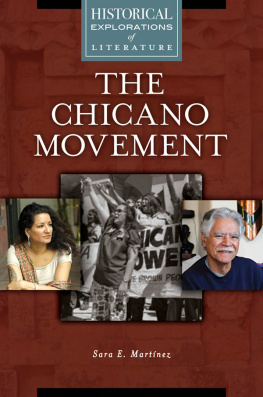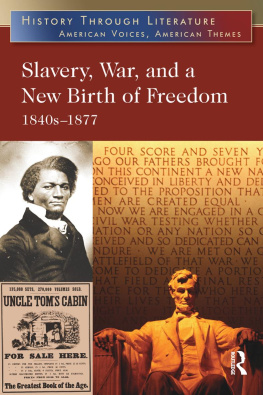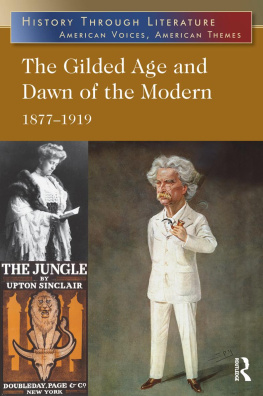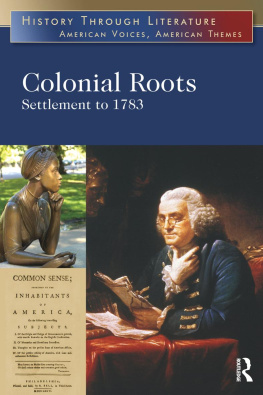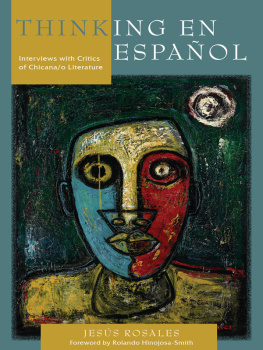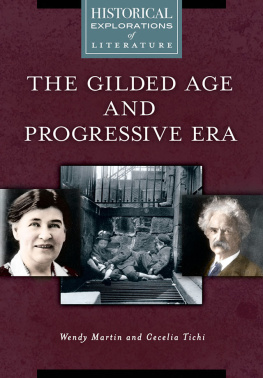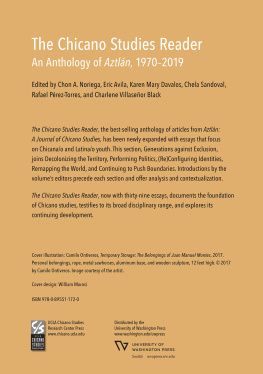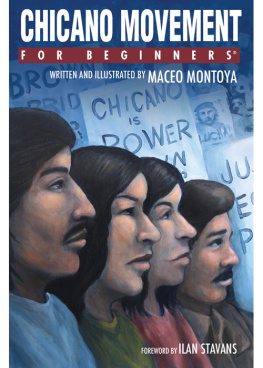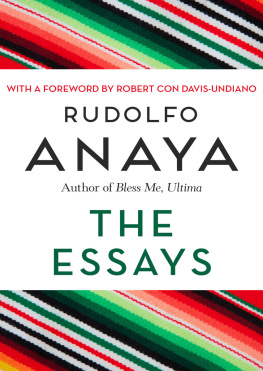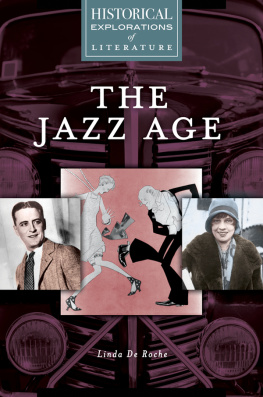THE CHICANO MOVEMENT
Recent Titles in Historical Explorations of Literature
The Harlem Renaissance: A Historical Exploration of Literature
Lynn Domina
American Slavery: A Historical Exploration of Literature
Robert Felgar
The Jazz Age: A Historical Exploration of Literature
Linda De Roche
The Gilded Age and Progressive Era: A Historical Exploration of Literature
Wendy Martin and Cecelia Tichi
The Depression Era: A Historical Exploration of Literature
Aaron Barlow
The Chicano Movement
A Historical Exploration of Literature
Sara E. Martnez
Historical Explorations of Literature

Copyright 2017 by ABC-CLIO, LLC
All rights reserved. No part of this publication may be reproduced, stored in a retrieval system, or transmitted, in any form or by any means, electronic, mechanical, photocopying, recording, or otherwise, except for the inclusion of brief quotations in a review, without prior permission in writing from the publisher.
Library of Congress Cataloging-in-Publication Data
Names: Martnez, Sara E.
Title: The Chicano movement : a historical exploration of literature /
Sara E. Martnez [author]
Description: Santa Barbara, California : Greenwood, an imprint
of ABC-CLIO, LLC [2017] | Series: Historical explorations of
literature | Includes bibliographical references and index.
Identifiers: LCCN 2016041924 (print) | LCCN 2016054995 (ebook) |
ISBN 9781610697071 (acid-free paper) | ISBN 9781610697088
(e-book)
Subjects: LCSH: American literatureMexican American
authorsHistory and criticism. | Chicano movement. |
Mexican AmericansSocial conditions.
Classification: LCC PS153.M4 C475 2017 (print) | LCC PS153.M4
(ebook) | DDC 810.9/86872dc23
LC record available at https://lccn.loc.gov/2016041924
ISBN: 978-1-61069-707-1
EISBN: 978-1-61069-708-8
212019181712345
This book is also available as an eBook.
Greenwood
An Imprint of ABC-CLIO, LLC
ABC-CLIO, LLC
130 Cremona Drive, P.O. Box 1911
Santa Barbara, California 93116-1911
www.abc-clio.com
This book is printed on acid-free paper 
Manufactured in the United States of America
Para Alma, Jos Emiliano, y la prxima generacina Liliana, Victoria y Sylvia

Contents

The Historical Explorations of Literature series is designed to help students understand key works of American literature by putting them in the context of history, society, and culture through historical context essays, literary analyses, chronologies, primary source documents, and suggestions for further research. Each volume in the series covers four or five canonical works related to a particular area of American literaturesignificant literary productions of the Jazz Age or the Harlem Renaissance, for example. For each title covered, students will find a brief synopsis of the work; separate essays on the works historical background and the authors biographical background; an essay on Why We Read This Work, summarizing the works enduring value and significance; and a series of thematic Historical Explorations that include a selection of related primary documents.

The Chicano movement took place during the turbulent 1960s, a time when oppressed people in the United States and around the world found and exercised their power. In the United States, African Americans led the way, soon to be followed by Chicanos, American Indians, women, and others. They tested their strength by following the nonviolent strategies of Gandhi and Martin Luther King, Jr.; they found strength in solidarity, working together across racial and class lines. It was a heady time as their power brought real change to their communities and a hope that they could aspire to a dignified standard of living.
The Chicano movement was born in the frustration and humiliation of veterans who had served their country only to be barred from businesses who would not serve Mexicans or dogs; it was born from the sweat, toil, blood, and tears of farmworkers who had been exploited and abused for too long; it was born in the thirst for justice of a people who had lost their land and been shunted off to the barrios; it was born of women finding themselves the victims of forced sterilization; it was born in the rage of high school students fed up with crumbling schools and teachers who denigrated their culture. It was nurtured by solidarity; by the courage to face beatings, imprisonment, and repression together; by wild creativity in music and literature; and by incremental successes and great challengesmarches, eloquent speeches, moratoriums, and solidaridad.
This book aims to present a holistic picture of the Chicano movement from the perspective of Chicano literature. The novels selected were written by authors from different regions of Aztln, with different life experiences and world views although, of course as Chicanos, these life experiences and cultural values overlap.
The abuelito of Chicano letters, Rudolfo Anaya of New Mexico, embodies the Southwestern perspective of the Chicano who has inhabited that part of the country since before the Pilgrims landed on Plymouth Rock. His novel Bless Me, Ultima speaks to the Chicanos deep spiritual roots and historical claims on this land. Born in Texas, author Toms Rivera lived the life of a migrant farmworker up until he entered junior college. His novel This Migrant Earth portrays that itinerant, insecure, hardworking way of life of families from Texas throughout the Midwest and California. The iconic Oscar Z. Acosta was born in California and also worked in the fields as a child. His novel The Revolt of the Cockroach People depicts the frenetic and exhilarating beginnings of the Chicano movement in Los Angeles. From the Midwest, Sandra Cisneros set her transcendent novel The House on Mango Street in a barrio of Chicago. With a young girls voice, the book powerfully narrates the Chicana experience.
The Chicano movement positively changed the status quo for many, and political representation has improved at every level from Congress to the Cabinet and even a Latina on the Supreme Court. The struggle continues into the 21st century as we battle many of the same issues that roused Aztln over 50 years ago including voting rights, crumbling schools, abuse by law enforcement, negative stereotypes, and exploitation of undocumented workers.
I have been told that no one calls themselves Chicano anymore and queried The Mexican about this in his syndicated advice column. He assures me that:
the fact is that Chicano as an identity was endangered by the 1980s, under assault from the Right by vendidos who preferred Hispanic and by Mexican immigrants who taught their children they were mexicanos, not pocho-ass Chicanos. [] The super-mega-anti-immigrant rhetoric is so nasty that an even newer identity is emerging: Xicanx. (Arellano, 2016)
For the purposes of this book, I have used Chicano, Mexican, and Mexican American almost interchangeably, generally noting any exceptions. In any case,

